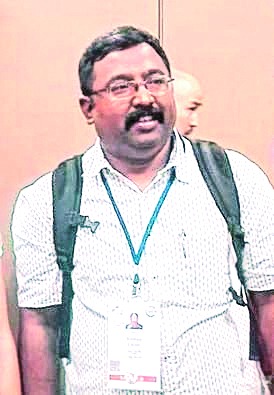
Guwahati, Sept. 4: Assam wildlife conservationist Bibhuti Lahkar, who today became the first Asian to win the International Union for Conservation of Nature's (IUCN) prestigious Heritage Heroes Award, has dedicated his achievement to Manas and the local communities living around the national park.
"I am delighted and honoured to get this award. I have dedicated this award to Manas, a world heritage site, and the local communities living around Manas," Lahkar, who works with Aaranyak, told The Telegraph.
Lahkar received the award at the World Conservation Congress of IUCN in Honolulu, Hawaii, today. The objective of the Heritage Heroes Award is to inspire people to value the importance of natural world heritage sites and recognise the need to collectively invest in their conservation.
"The public has spoken, choosing Bibhuti Lahkar as the people's choice Heritage Hero for his dedication to the conservation of Manas wildlife sanctuary. The result of last week's online voting was announced at the 2016 IUCN World Conservation Congress in Hawaii, USA," the IUCN said.
"He is as humble as before. After getting the international award, his responsibilities have increased. He will shoulder such responsibilities to contribute further towards conservation," Bibhab Talukdar, the secretary general of Aaranyak, told The Telegraph.
Lahkar, a grasslands specialist, has been working tirelessly to save the grasslands, flora and fauna of Manas National Park and has been involved in community development on the fringe areas of the protected area for nearly 18 years.
According to the IUCN, the expert in human-wildlife conflict mitigation has showed how humans and elephants, for example, can live side by side.
He has empowered some 300 young people to be directly engaged in the site's protection, including 100 whom he trained as tour guides, and has helped train convert poachers on the monitoring of wildlife.
The Manas National Park was withdrawn from the list of World Heritage in Danger in 2011, after almost two decades of armed conflict. "Bibhuti Lahkar's field-based surveys were among the first to establish that the site was indeed on a path to recovery," the IUCN said.











